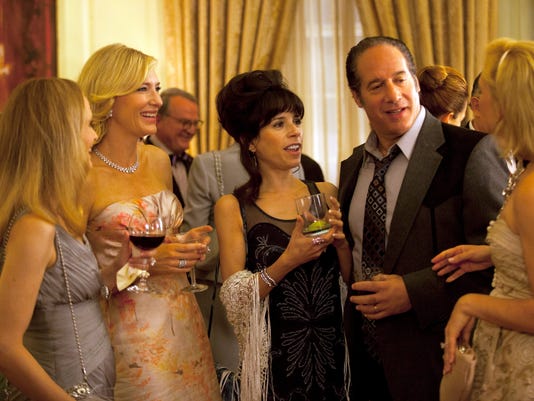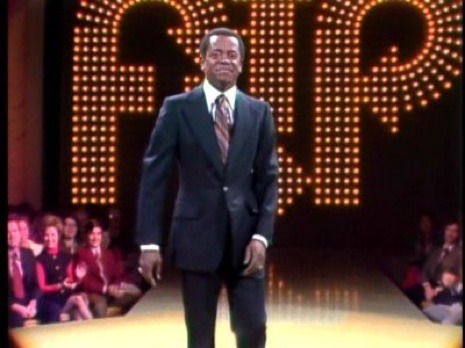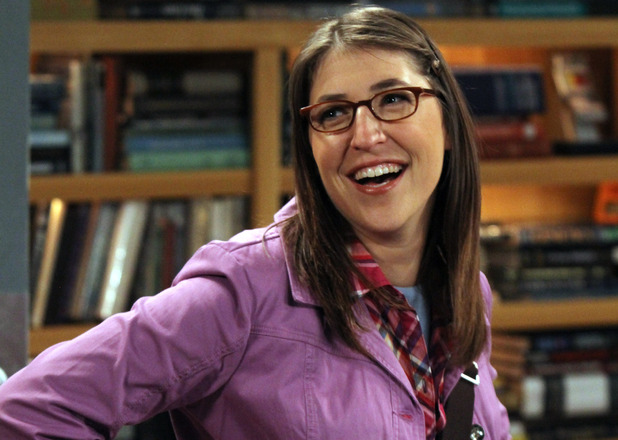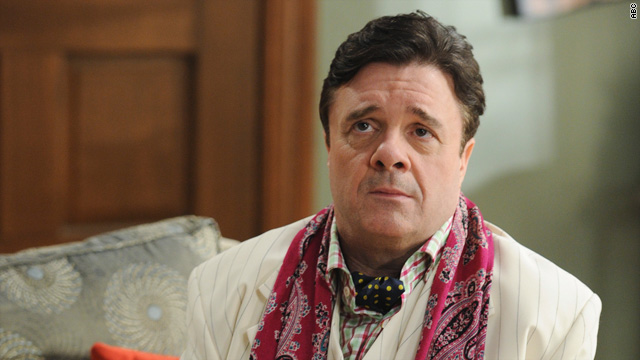The Emmys are the most predictable of awards. Unlike the Oscars, the Tonys or the Grammys, they get to nominate the same shows and names years after year.
This year was no different, as certain favorites get yet another shot to take something home for their mantle.
Here are the main nominations with comments:
Lead Actor in a Drama Series
Hugh Bonneville,
Downton Abbey
Bryan Cranston,
Breaking Bad
Jeff Daniels,
The Newsroom
Jon Hamm,
Mad Men
Kevin Spacey,
House of Cards
Damian Lewis,
Homeland
Hugh Bonneville is the head of Downton Abbey the place, but he's not the lead of
Downton Abbey the show, but I guess he's got to go somewhere. Jeff Daniels does a fine job, but it's such a rotton show. Damian Lewis was overrated last year, here's hoping he doesn't win again. Bryan Cranston is always great, but maybe it's time for Jon Hamm to finally win one of these.
Lead Actress in a Drama Series
Connie Britton,
Nashville
Claire Danes,
Homeland
Elisabeth Moss,
Mad Men
Michelle Dockery,
Downton Abbey
Vera Farmiga,
Bates Motel
Kerry Washington,
Scandal
Robin Wright,
House of Cards
Seven nominees? Why not ten? Twenty? They liked Connie Britton in her last show
Friday Night Lights, so maybe it was a reflex to just keep nominating her.
Outstanding Lead Actor In A Miniseries Or A Movie
Benedict Cumberbatch,
Parade's End
Michael Douglas,
Behind The Candelabra
Matt Damon,
Behind The Candelabra
Toby Jones,
The Girl
Al Pacino,
Phil Spector
The overpraised
Behind The Candelabra got a lot of nominations, but will the two leads split the vote? I'd think Douglas will get enough to take it. Most of these are actors playing real people. Toby Jones was fine at Hitchcock in a weak movie. Pacino was fine as Phil Spector, too, though his was more an interpretation of than an impresonation.
Outstanding Lead Actress In A Miniseries Or A Movie
Jessica Lange,
American Horror Story: Asylum
Laura Linney,
The Big C: Hereafter
Helen Mirren,
Phil Spector
Elisabeth Moss,
Top of the Lake
Sigourney Weaver,
Political Animals
Laura Linney get's nominated for the same role, but the category is different. Nothing but names here. And Elisabeth Moss gets a chance to lose twice for big awards.
Outstanding Host For A Reality Or Reality-Competition Program
Ryan Seacrest,
American Idol
Betty White,
Betty White's Off Their Rockers
Tom Bergeron,
Dancing With The Stars
Heidi Klum and Tim Gunn,
Project Runway
Cat Deeley,
So You Think You Can Dance
Anthony Bourdain,
The Taste
Still the silliest of the big awards.
Outstanding Lead Actor in a Comedy Series
Alec Baldwin,
30 Rock
Jason Bateman,
Arrested Development
Louis C.K.,
Louie
Don Cheadle,
House of Lies
Matt LeBlanc,
Episodes
Jim Parsons,
The Big Bang Theory
A fun category, but Don Cheadle, though a name actor, isn't doing much in his lousy show. Alec Baldwin's last chance to win for
30 Rock and Jim Parsons gets another chance to win for
Big Bang. Jason Bateman makes a comeback, and Louis C. K. is always a wild card.
Outstanding Lead Actress in a Comedy Series
Laura Dern,
Enlightened
Lena Dunham,
Girls
Edie Falco,
Nurse Jackie
Tina Fey,
30 Rock
Julia Louis-Dreyfus,
Veep
Amy Poehler,
Parks and Recreation
It's depressing how Lena Dunham gets all these nominations. Edie Falco is another case of good work in a rotten show. Laura Dern may be another case of nominate the movie people who deign to appear on TV. Last chance for Tina Fey to pick up another award for her show, another chance for Amy Poehler to win something, but if Academy favorite Louis-Dreyfus takes it, at least it's for good work.
Reality-Competition Series
The Amazing Race
Dancing With the Stars
Project Runway
So You Think You Can Dance
Top Chef
The Voice
Don't watch these shows, but doesn't
The Amazing Race always win?
Variety Series
The Colbert Report
The Daily Show
Late Night With Jimmy Fallon
Jimmy Kimmel Live
Saturday Night Live
Real Time With Bill Maher
I do watch these shows, and why does
The Daily Show always win? And do talk shows and straight comedy shows mix?
Once again, warhorses Letterman and Leno--and for that matter Conan--shut out.
Drama Series
Breaking Bad
Downton Abbey
Game of Thrones
House of Cards
Homeland
Mad Men
Now we're talking. Haven't seen
House Of Cards, but the other five are certifiably good shows (and weak onces, like
Boardwalk Empire or, heaven help us,
The Newsroom, nowhere to be seen). The only questionable one, actually, is Downton Abbey, which is getting a little tired.
Comedy Series
30 Rock
The Big Bang
Girls
Louie
Modern Family
Veep
Girls? Ugh. The rest are fine, and I guess, for the first time in four years,
Community didn't deserve to be nominated so I won't mention it. Apparently,
Parks And Recreation isn't up to it either. And no
Arrested Development. And goodbye
Office, no award for you (not that you deserved one). Also, no animated series.
Miniseries or Movie
American Horror Story
Behind the Candelabra
The Bible
Phil Spector
Political Animals
Top of the Lake
I guess it's
Candelabra's year, though the Academy does have a thing for
American Horror Story.
Outstanding Supporting Actor In A Drama Series
Bobby Cannavale,
Boardwalk Empire
Jonathan Banks,
Breaking Bad
Aaron Paul,
Breaking Bad
Jim Carter,
Downton Abbey
Peter Dinklage,
Game Of Thrones
Mandy Patinkin,
Homeland
I like the actor Bobby Canavale, but not his one-note character from
Empire. Once again we're treated to Aaron Paul plus one from
Breaking Bad. I'm still not sure how they decide which one to pick from
Downton Abbey, though Dinklage is clearly the go-to guy from
Thrones (though did they pick the wrong Lannister?). Shockingly, not a single nod to
Mad Men. I'd give it to Mandy Patinkin, anyway.
Outstanding Supporting Actress In A Drama Series
Anna Gunn,
Breaking Bad
Maggie Smith,
Downton Abbey
Emilia Clarke,
Game Of Thrones
Christine Baranski,
The Good Wife
Morena Baccarin,
Homeland
Christina Hendricks,
Mad Men
No surprises here. I don't think Anna Gunn is going to get it, but could it be the Khaleesi's year? And it would be a nice surprise to see Christina Hendricks win something.
Outstanding Guest Actor In A Drama Series
Nathan Lane,
The Good Wife
Michael J. Fox,
The Good Wife
Rupert Friend,
Homeland
Robert Morse,
Mad Men
Harry Hamlin,
Mad Men
Dan Bucatinsky,
Scandal
These guest categories are usually reserved for big names who drop in. It'd be cool to see Harry Hamlin win--he did do a great job.
Outstanding Supporting Actor In A Comedy Series
Adam Driver,
Girls
Jesse Tyler Ferguson,
Modern Family
Ed O'Neill,
Modern Family
Ty Burrell,
Modern Family
Bill Hader,
Saturday Night Live
Tony Hale,
Veep
An odd oversight--no Eric Stonestreet from Modern Family, who's won this award twice. Ty Burrell has also won this once, but will the Academy try to share the wealth with his
Modern Family co-stars? Was there no room for just one nominee from
Community or
Big Bang or
30 Rock or
Parks And Recreation?
Outstanding Supporting Actress In A Comedy Series
Mayim Bialik,
The Big Bang Theory
Jane Lynch,
Glee
Julie Bowen,
Modern Family
Merritt Wever,
Nurse Jackie
Sofia Vergara,
Modern Family
Jane Krakowski,
30 Rock
Anna Chlumsky,
Veep
Once again, seven? Nominating Jane Lynch has become a reflex at this point. Overall, good choices, and it'd be interesting to see grown-up Blossom take it.
Outstanding Guest Actor In A Comedy Series
Bob Newhart,
The Big Bang Theory
Nathan Lane,
Modern Family
Bobby Cannavale,
Nurse Jackie
Louis C.K.,
Saturday Night Live
Justin Timberlake,
Saturday Night Live
Will Forte,
30 Rock
So whether Nathan Lane drops in on a drama or comedy they nominate him. And extra nominatinos for Louis C.K. and Bobby Canavale (I thought he was a regular on
Nurse Jackie) just in case they don't have enough already. And no David Lynch--or anyone--from
Louie.
Outstanding Guest Actress In A Drama Series
Margo Martindale,
The Americans
Diana Rigg,
Game Of Thrones
Carrie Preston,
The Good Wife
Linda Cardellini,
Mad Men
Jane Fonda,
The Newsroom
Joan Cusack,
Shameless
A lot of big names with weak performances.
Outstanding Guest Actress In A Comedy Series
Molly Shannon, Enlightened
Dot-Marie Jones, Glee
Melissa Leo, Louie
Melissa McCarthy, Saturday Night Live
Kristen Wiig, Saturday Night Live
Elaine Stritch, 30 Rock
Interesting that Melissa Leo got it for Louie and not Parker Posey. And apparently anyone from Bridesmaids who hosts SNL gets a nomination.
Outstanding Supporting Actor In A Miniseries Or A Movie
James Cromwell, American Horror Story: Asylum
Zachary Quinto, American Horror Story: Asylum
Scott Bakula, Behind The Candelabra
John Benjamin, The Big C: Hereafter
Peter Mullan, Top Of The Lake
Scott Bakula, but not Rob Lowe, from Candelabra. Odd.
Outstanding Supporting Actress In A Miniseries Or A Movie
Sarah Paulson, American Horror Story: Asylum
Imelda Staunton, The Girl
Ellen Burstyn, Political Animals
Charlotte Rampling, Restless
Alfre Woodard, Steel Magnolias
Five different shows, haven't seen any. Makes you wonder how many the voters have seen.
Outstanding Writing For A Miniseries, Movie Or A Dramatic Special
Richard LaGravenese, Behind The Candelabra
Abi Morgan, The Hour
Tom Stoppard, Parade's End
David Mamet, Phil Spector
Gerard Lee and Jane Campion, Top Of The Lake
Stoppard? Mamet? Is this the Tonys?
Outstanding Variety Special
The Kennedy Center Honors
Louis C.K.: Oh My God
Mel Brooks Strikes Back! With Mel Brooks And Alan Yentob
Saturday Night Live: Weekend Update Thursday (Part One)
12-12-12: The Concert For Sandy Relief
No Oscars? No Tonys? No way.












































